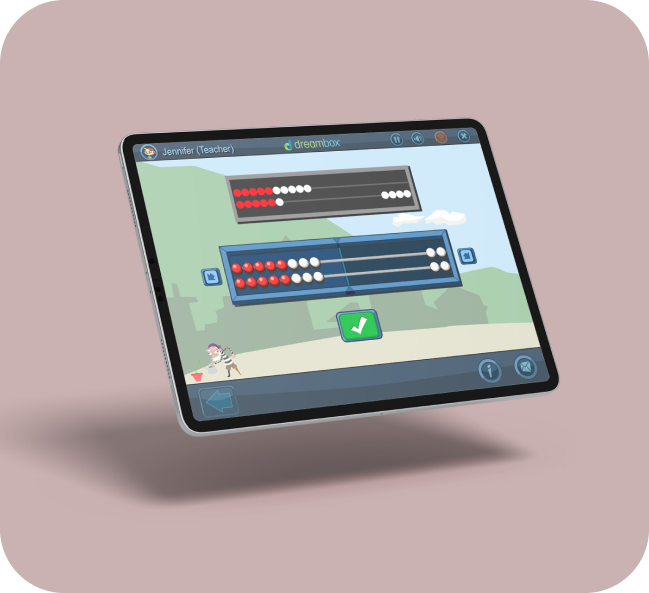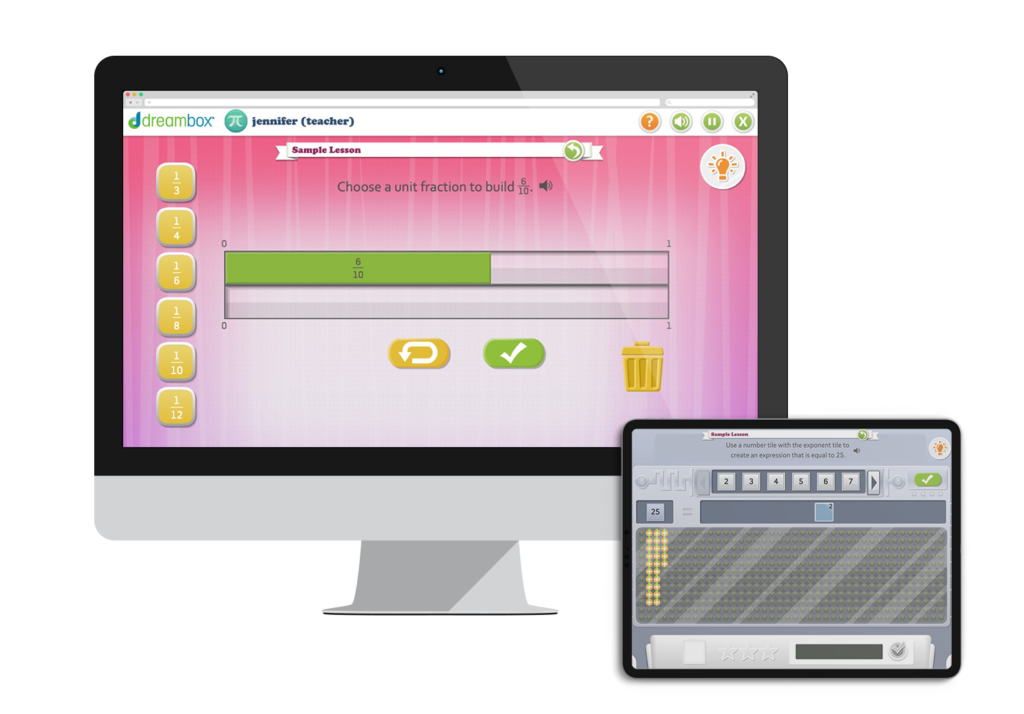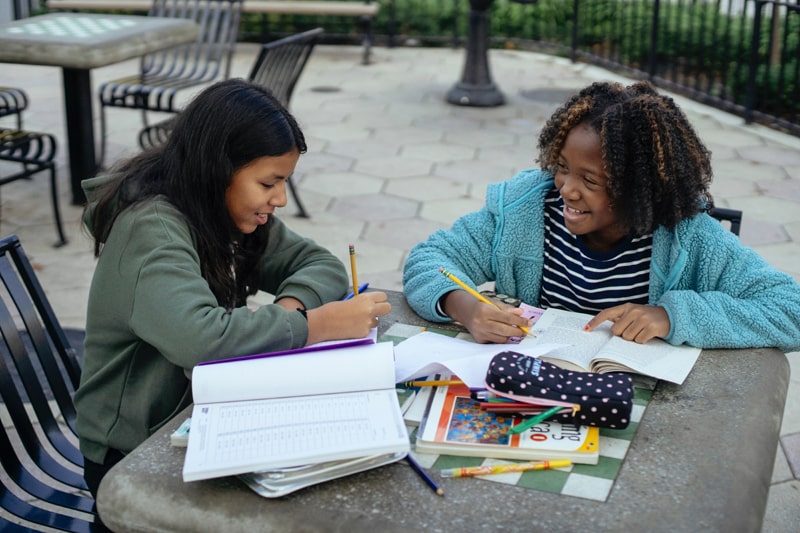
Engaging online math help for homeschoolers
Boost essential math skills and help your homeschooler gain confidence
With multiple grade levels and family plan options, DreamBox is the perfect partner in your homeschool math curriculum.
Engaging online math help for homeschoolers
Boost essential math skills and help your homeschooler gain confidence
With multiple grade levels and family plan options, DreamBox is the perfect partner in your homeschool math curriculum.

Track learning progress
USER-FRIENDLY DASHBOARD
DreamBox allows you to monitor progress and pinpoint gaps in understanding through our Family Dashboard that translates student data into easy-to-interpret, actionable insights. Simplify your planning and celebrate progress with printable certificates.
Easy and free setup
14 DAYS FREE
Sign up for a 14-day free trial — and discover how DreamBox can help your homeschooler achieve math success.


Focus on critical skills
TARGETED SUPPORT
Is your homeschooler excelling in algebra but struggling with geometry? DreamBox’s progress tracker and assignment tools help you identify challenges and assign targeted lessons to address them. This personalized approach strengthens their understanding of key concepts and keeps them excited to learn.
Start your free 14-day trial
See how DreamBox can help your homeschooler with math by signing up for a free trial today.
Parents and teachers love DreamBox
Why homeschool families choose DreamBox Math
DreamBox Math blends rigorous education with engaging activities, making it the ideal choice for homeschool parents looking for a flexible and effective math learning platform.
Designed for Young Learners
Dynamic lessons, relatable scenarios, and age-appropriate activities keep homeschoolers focused and motivated.
Real-Time Progress Monitoring
Track your homeschooler’s growth with continuous updates, eliminating the need for one-time placement tests.
Productive Screen Time
Turn learning into fun with interactive lessons that make every minute in front of a screen count.
Adaptive Lesson Plans
DreamBox customizes lessons as your homeschooler progresses, ensuring they always learn at the right level.
Measurable Results
Just one hour each week can drive more than a grade level of math growth.
Validated Success
Designed for young learners
Dynamic lessons, relatable scenarios, and age-appropriate activities keep homeschoolers focused and motivated.
Real-time progress monitoring
Track your homeschooler’s growth with continuous updates, eliminating the need for one-time placement tests.
Productive screen time
Turn learning into fun with interactive lessons that make every minute in front of a screen count.
Adaptive lesson plans
DreamBox customizes lessons as your homeschooler progresses, ensuring they always learn at the right level.
Measurable results
Just one hour each week can drive more than a grade level of math growth.
Validated success
Math Curriculum Alignment
Our math curriculum is rigorously designed to align with each US state’s math standards, Common Core and several Canadian standards.
It’s time to build on what we’ve learnt so far and develop mathematical fluency.
Level up number knowledge with the introduction of multiplication, division and fractions.
Classifying, analysing and problem-solving: we’re applying all our skills here!
Understanding is extended even further across number, measurement and geometry.
Meet ratio, rational numbers and equations – this is where we explore statistical thinking.
Children learn more advanced topics like pre-algebra and investigate complex statistics and probability.
Introduce problems involving shape, scale drawings, population samples and more.
Available on most devices
Students can play DreamBox on all computers, laptops, and Chromebooks through an internet browser and via our iPad app on iPad. At this time, DreamBox Math is not available on smartphones, Android tablets, or eReaders.

FAQs
Absolutely! DreamBox offers family plans tailored to homeschoolers, making it easy to support your child’s learning journey.
DreamBox adapts to your child’s learning style, offering personalized lessons based on how they solve problems. The platform tracks their progress and continuously adjusts to meet their evolving needs.
Homeschool resources
From counting to 100 to learning multiplication, we have the math games, worksheets, and guides homeschool parents need to help their students succeed! Follow along with the lessons in your child’s personalized learning path, or customize their education with DreamBox’s resources and tools to fit your homeschooling style.

Unsure which homeschooling approach is best for your family? Our guide introduces you to several popular methods–one of these could be perfect for you!

Ready to begin homeschooling? Great! Our comprehensive guide gives you everything you need to get started!
Thinking of homeschooling? Before you start, examine the pros and cons of homeschooling.
Easy and inexpensive, an experienced homeschool mom shares seven top homeschool organization tips for your family’s curriculum, supplies, scheduling, and meals
What is homeschooling and how does homeschooling work? Find out how homeschooling works and discover how to get started.
Before you dive into homeschooling, check out this information about the cost of homeschooling.
Considering homeschool until 2nd grade? Discover the pros and cons, tips for success, and what to do next—whether you continue or transition to public school.
Discover the best homeschooling books for parents to inspire, guide, and support your homeschool journey—perfect for beginners and seasoned families alike.
Homeschool curriculums

Find help for preschool homeschool with curriculum, ideas, and activities that introduce your child to the joy of learning.
Find out more about second-grade homeschool curriculums plus bonus homeschooling tips to make it easier
Grades
If you’ve ever wondered how to help your child with math homework or what they should know by the end of fifth grade, these elementary math resources are for you.
Choose a grade level below to browse math skills and objectives by grade.
It’s time to build on what we’ve learnt so far and develop mathematical fluency.
Level up number knowledge with the introduction of multiplication, division and fractions.
Classifying, analysing and problem-solving: we’re applying all our skills here!
Understanding is extended even further across number, measurement and geometry.
Meet ratio, rational numbers and equations – this is where we explore statistical thinking.
Children learn more advanced topics like pre-algebra and investigate complex statistics and probability.
Introduce problems involving shape, scale drawings, population samples and more.

















